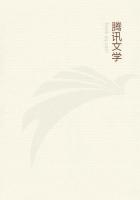NO earnest student of human culture can as yet have forgotten or wholly outlived the feeling of delight awakened by the first perusal of Max Muller's brilliant "Essay on Comparative Mythology,"--a work in which the scientific principles of myth-interpretation, though not newly announced, were at least brought home to the reader with such an amount of fresh and striking concrete illustration as they had not before received. Yet it must have occurred to more than one reader that, while the analyses of myths contained in this noble essay are in the main sound in principle and correct in detail, nevertheless the author's theory of the genesis of myth is expressed, and most likely conceived, in a way that is very suggestive of carelessness and fallacy. There are obvious reasons for doubting whether the existence of mythology can be due to any "disease," abnormity, or hypertrophy of metaphor in language; and the criticism at once arises, that with the myth-makers it was not so much the character of the expression which originated the thought, as it was the thought which gave character to the expression. It is not that the early Aryans were myth-makers because their language abounded in metaphor;it is that the Aryan mother-tongue abounded in metaphor because the men and women who spoke it were myth-makers. And they were myth-makers because they had nothing but the phenomena of human will and effort with which to compare objective phenomena. Therefore it was that they spoke of the sun as an unwearied voyager or a matchless archer, and classified inanimate no less than animate objects as masculine and feminine. Max Muller's way of stating his theory, both in this Essay and in his later Lectures, affords one among several instances of the curious manner in which he combines a marvellous penetration into the significance of details with a certain looseness of general conception.[155] The principles of philological interpretation are an indispensable aid to us in detecting the hidden meaning of many a legend in which the powers of nature are represented in the guise of living and thinking persons; but before we can get at the secret of the myth-making tendency itself, we must leave philology and enter upon a psychological study. We must inquire into the characteristics of that primitive style of thinking to which it seemed quite natural that the sun should be an unerring archer, and the thunder-cloud a black demon or gigantic robber finding his richly merited doom at the hands of the indignant Lord of Light.
[155] "The expression that the Erinys, Saranyu, the Dawn, finds out the criminal, was originally quite free from mythology; IT MEANT NO MORE THAN THAT CRIME WOULD BE BROUGHTTO LIGHT SOME DAY OR OTHER. It became mythological, however, as soon as the etymological meaning of Erinys was forgotten, and as soon as the Dawn, a portion of time, assumed the rank of a personal being."--Science of Language, 6th edition, II.
615. This paragraph, in which the italicizing is mine, contains Max Muller's theory in a nutshell. It seems to me wholly at variance with the facts of history. The facts concerning primitive culture which are to be cited in this paper will show that the case is just the other way. Instead of the expression "Erinys finds the criminal" being originally a metaphor, it was originally a literal statement of what was believed to be fact. The Dawn (not "a portion of time,"(!) but the rosy flush of the morning sky) was originally regarded as a real person. Primitive men, strictly speaking, do not talk in metaphors; they believe in the literal truth of their similes and personifications, from which, by survival in culture, our poetic metaphors are lineally descended. Homer's allusion to a rolling stone as essumenos or "yearning" (to keep on rolling), is to us a mere figurative expression; but to the savage it is the description of a fact.
Among recent treatises which have dealt with this interesting problem, we shall find it advantageous to give especial attention to Mr. Tylor's "Primitive Culture,"[156] one of the few erudite works which are at once truly great and thoroughly entertaining. The learning displayed in it would do credit to a German specialist, both for extent and for minuteness, while the orderly arrangement of the arguments and the elegant lucidity of the style are such as we are accustomed to expect from French essay-writers. And what is still more admirable is the way in which the enthusiasm characteristic of a genial and original speculator is tempered by the patience and caution of a cool-headed critic. Patience and caution are nowhere more needed than in writers who deal with mythology and with primitive religious ideas; but these qualities are too seldom found in combination with the speculative boldness which is required when fresh theories are to be framed or new paths of investigation opened. The state of mind in which the explaining powers of a favourite theory are fondly contemplated is, to some extent, antagonistic to the state of mind in which facts are seen, with the eye of impartial criticism, in all their obstinate and uncompromising reality.















